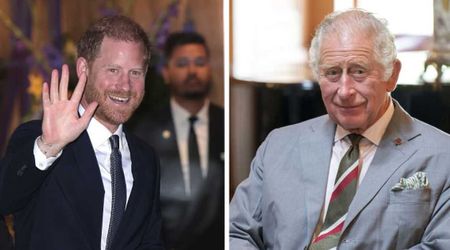Matthew Perry's death: US Attorney Martin Estrada explains value of filing charges after actor's demise

LOS ANGELES, CALIFORNIA: US Attorney E Martin Estrada has quashed rumors that it was Matthew Perry's celebrity status that brought charges against five people.
On August 15, the ‘Friends’ star’s longtime assistant, an ex-film director, two doctors, and an alleged dealer called the “Ketamine Queen” were slapped with charges following Perry’s death last year.
These were identified as Jasveen Sangha, 41, (Ketamine Queen), Dr Salvador Plasencia, 42, Dr Mark Chavez, 54, Eric Fleming, 54, (broker), and Kenneth Iwamasa, 59, his live-in assistant.
Among them, Sangha, who has been arrested, is reported to have sold the fatal dose of ketamine that killed Perry.

US Attorney E Martin Estrada says 'every life matters' for the prosecution
Talking more about the case of Matthew Perry's death, the public prosecutor told People, “This was not investigated and looked at because it was Matthew Perry.”
“It was investigated because we had a victim in our jurisdiction in Southern California who died from drugs provided to him by drug dealers. We don't do this just for celebrities,” he explained. “In the past two years we brought over 60 of these cases. This happens to be the one that involves a celebrity. For us, every life matters.”
Perry was found floating face-down in the hot tub at his Pacific Palisades residence on October 28, 2023, after an accidental drug overdose.

What did Matthew Perry's autopsy reveal?
In December 2023, Matthew Perry's autopsy report came out, revealing that the actor died from the acute effects of ketamine.
According to the DEA, ketamine is "a dissociative anesthetic that has some hallucinogenic effects.”
The report further detailed that “Drowning, coronary artery disease and effects from buprenorphine, a medication used to treat opioid use disorder, were contributing factors," behind Perry's death.
Estrada emphasized that it is important to hold people accountable for death resulting from drug trafficking cases to save others.

“There's two main reasons we do these. First, for the victims and their families and loved ones, it's so important for them to get vindication, some sort of closure,” he said.
The prosecutor added, “Too often these cases are ignored and ... too often we just blame the victim. We don't do that anymore."
Estrada elaborated, “The second reason is to deter this from happening and to send a message that if you're a drug dealer and you kill someone by selling them drugs, you're going to have to pay for that."
“That deterrent message is incredibly important for us and it's to try to stop it,” he said.










